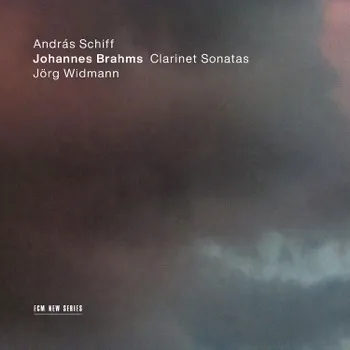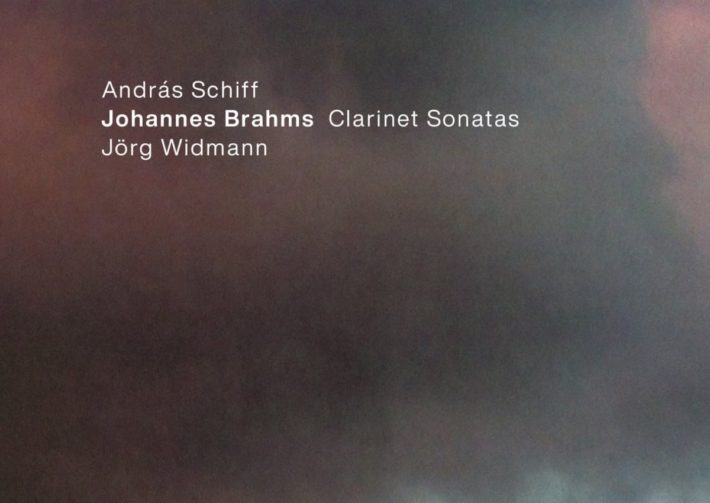At the end of 1890, Johannes Brahms considered himself retired, telling one close friend he was content to “never compose anything again.” But in March 1891, Brahms traveled to Meiningen to hear a concert by its court orchestra. Afterward, he met its principal clarinet, Richard Mühlfeld, whose playing and musicianship so impressed Brahms that he wrote four new works over the next few years featuring the clarinet: the Trio in A minor” (op. 114), the Clarinet Quintet (op. 115), and the two Sonatas (op, 120) on this new recording.

The album begins with the second sonata in E-flat major. The first movement’s tender and folk-like opening melody sets the tone for the entire movement. The development is impressive, featuring a gorgeous and widespread harmonic exploration that never disturbs the music’s autumnal mood. The second movement, a scherzo-like “Allegro appassionato,” raises the emotional temperature as the piano and clarinet engage in playful and impassioned dialogue. The final “Andante con moto” presents a theme (which returns to the more placid mood of the first movement) and three extended variations.
Jörg Widmann’s “Intermezzi for Piano” is placed between the sonatas. At first its juxtaposition between the sonatas felt rather jarring, but after repeated hearings I became convinced both by its placement and the music itself. In five movements, the composer hopes to capture the ‘disconcerting concision and terse brevity” of Brahms’ own late Piano Intermezzos. One hears many passages that indeed reflect those piano works, as well as the clarinet sonatas, through a 21-st century lens. Written for András Schiff, the pianist proves to be an ardent and compelling advocate, music that reveals more of its wonders with each hearing.
The F-minor Sonata begins with a brief piano introduction, after which the clarinet presents the brooding principal theme. The music soon shifts into more virtuosic arpeggios, the piano writing increasingly full-textured. The development again features more beguiling harmonic exploration, shifting through varying moods – giddy one moment, melancholic the next. The final moments (track 9, 7’28”) are almost painfully exquisite, a moment of absolute serenity.
The “Andante un poco adagio,” is a deeply introspective and intimate conversation between clarinet and piano. The third movement sounds mixes an elegant waltz with an earthier, rambunctious Austrian ländler, its middle section more restlessly chromatic. The final rondo begins with a burst of exuberance, quickly settling into a study of contrasting moods, as each new passage seems intent on mollifying the opening music’s youthful energy. Thankfully, the opening music’s high spirits have the last word in a lively and spirited coda.
I highlight the works’ compositional qualities as Jörg Widmann and András Schiff are so successful in highlighting them. As always with Schiff, clarity is of huge importance in approaching the music, and it calls for pianistic decisions as avoiding excessive pedal or over-emphasizing the bass. Widmann’s tone is gorgeous, with a fulsome, even tone across every register. He and Schiff conjure a wide variety of colors and shading and their control of dynamics is incredible, with some particularly awe-inspiring pianissimos in Widmann’s lowest register. The fruits of their long-standing musical partnership is apparent in almost every bar, as they reveal the emotional essence of this music in an utterly natural, seemingly spontaneous way.
With music-making of this caliber, I was continuously bewitched by these performances. Wonderful engineering and erudite liner notes round out an exceptional recording.
Recommended Comparisons
Fröst | Manasse | Peyer | Salzman
Brahms – Clarinet Sonatas, Op. 120
Widmann – Intermezzi
Jörg Widmann – Clarinet
András Schiff – Piano
ECM, CD 4819512

Read more classical music reviews or visit The Classic Review Amazon store












